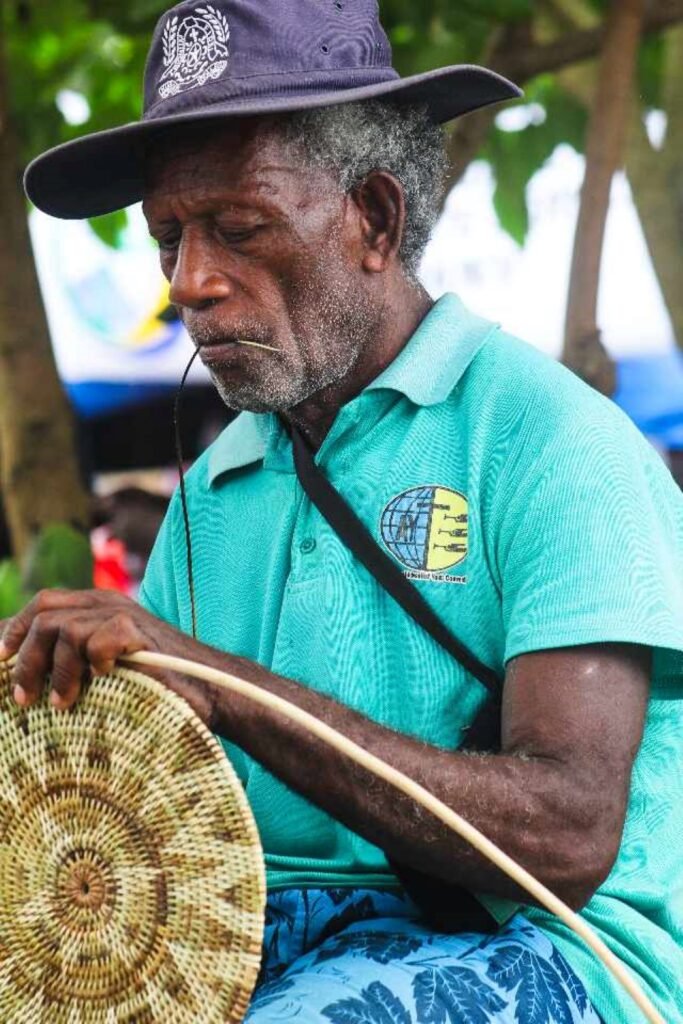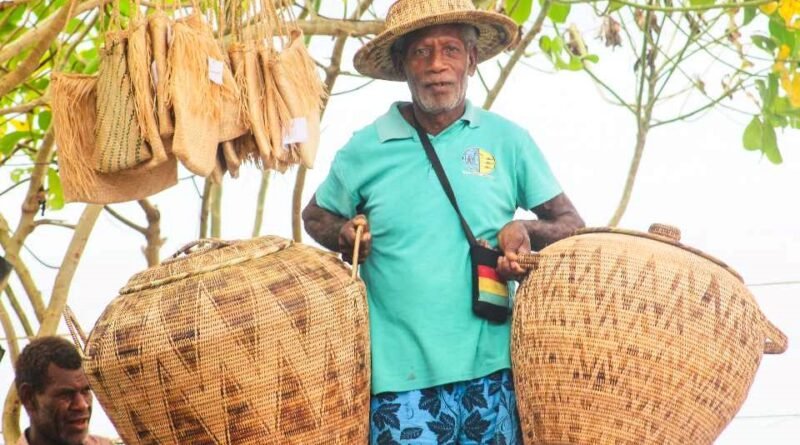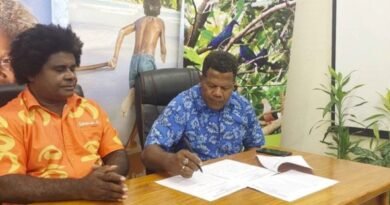Basket Weaving: An Art Passed from Uncle to Nephew
BY JOHN HOUNANIHAU
BILLY Graham Basoa, from Guadalcanal province in the Solomon Islands, mastered the art of basket weaving from his uncle, who taught it to him decades ago.
The 70-year-old artisan from Kolosulu village in North East Guadalcanal recently caught the attention of everyone that walked by during this year’s Guadalcanal 2nd Appointed Day Celebrations: Mini Trade Show event held at Mamara, West Guadalcanal.
The art of basket weaving—creating brightly patterned woven baskets that provide a variety of uses—is a skill passed to Billy as an apprentice under his late uncle, John Gogoni, a missionary teacher in Western Province in the late 1970s.

The 70-year-old artisan from Kolosulu village in Northeast Guadalcanal have recently caught the attention of everyone that walked by during this year’s Guadalcanal 2nd Appointed Day Celebrations – Mini Trade Show event held at Mamara, West Guadalcanal.
“My uncle learned the art of weaving from a guy from Papua New Guinea while he was a teacher,” he recalled. “It was from 1970 to 1972, after I completed my standard 7 at the Goldie College in the Western Province, when I learned how to weave baskets.”
Over time, Billy has transformed from making shopping baskets, trays, tea cup mats, and other woven products. The skill carries the opportunity to be self-reliant and provide for his family’s livelihood and income stability.
“A staple amount of money has been made from selling my woven products. I often work with orders from people and customers in Honiara and other provinces.
“I frequently use my creativity to create the looks I want and also to attract my clients, for instance, the patterns and colors.”

“The baskets I made mean so much to me because if I don’t make these woven products, I will have no money. Three of my six children are currently enrolled at the Solomon Islands National University (SINU). By selling my basket, I make enough money to support them,” he explained.
He noted that there is a need to keep traditional arts and crafts alive.
“Asa and Tunialu (Guadalcanal dialects) are the two major vines employed to produce my woven products. Tunialu often hangs from large trees like Abalolo and Akwa. I often pull it down, remove its fiber, and let it dry out in the sun. The fibers are flexible and unbreakable.

“There are three essential tools to make a basket: sharp tin cans or pieces of metal (used as a smoothing tool), a correctly sharpened knife, and a sharp nail (from a wire umbrella).
“The large baskets can take me two to three months to make. It depends on how much time I spend. I can finish the little baskets in one to two days,” Billy added.




